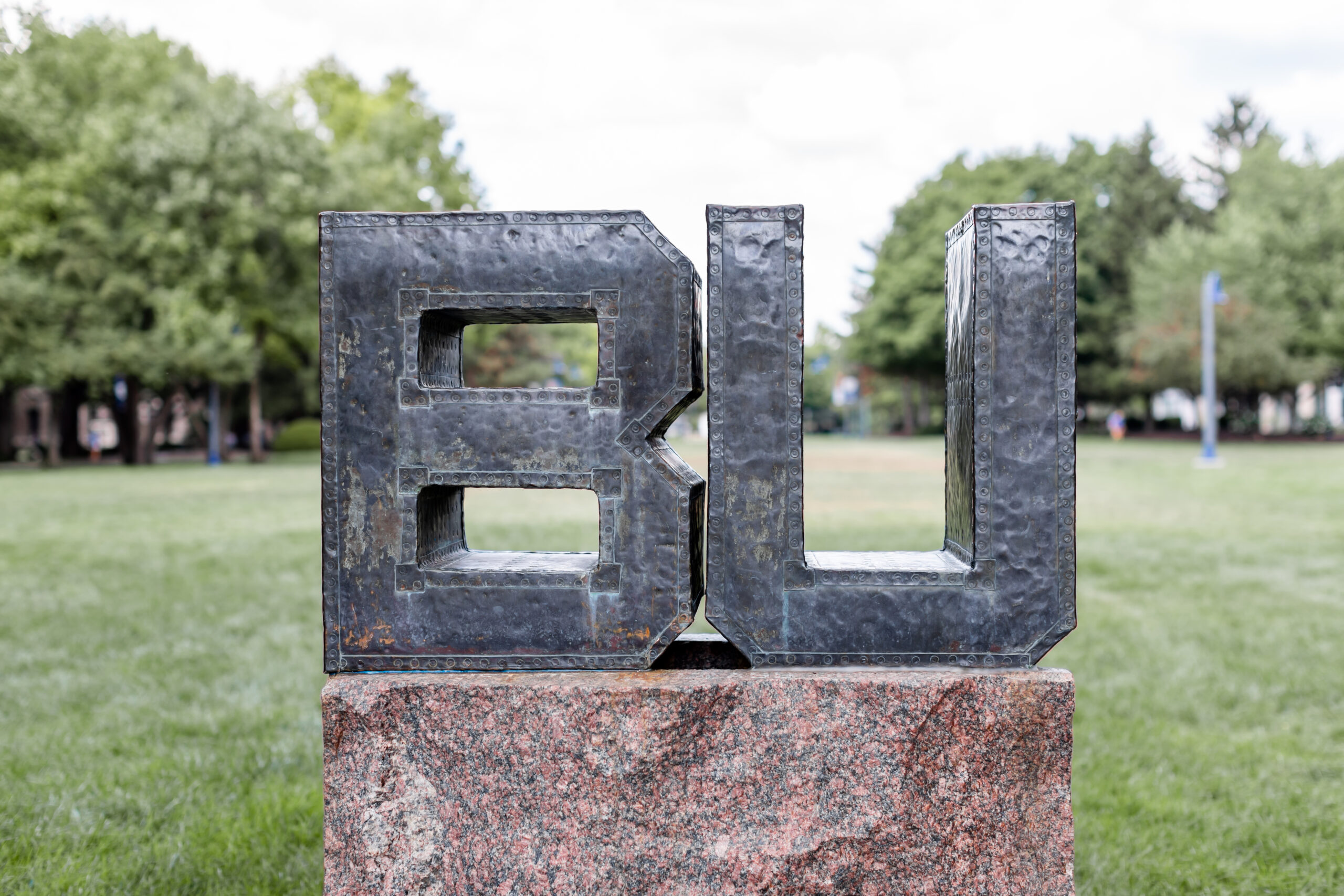Collegian file photo.
JASPER PILARZ | NEWS EDITOR | lpilarz@butler.edu
With the fate of Ross Hall decided and the announcement made that the former student housing will become a boutique hotel, many on campus may be hearing the phrase “Gateway Project” for the first time. While the project will bring many changes to campus, some worry these efforts are not entirely in students’ favor.
Just days before the start of the 2024 fall semester, Butler President James Danko held a press conference announcing that Ross Hall would be renovated into a boutique hotel. This announcement was met with mixed responses on Butler’s Instagram, where students and alumni criticized the project as an inadequate use of university time and funding.
The hotel, which the university intends to open to the public by the 2026-27 academic year, will be funded entirely by outside investment from Purpose Lodging. Butler’s Chief Strategy Officer Melissa Beckwith said funding for the Gateway Project is sourced from several different pools of capital, but never from student tuition.
In addition to the Ross hotel, there are proposed and in-progress plans for spaces throughout campus. Upcoming projects include the development of a Safety and Transit Hub and the rewilding of Holcomb Gardens. There are also several project proposals still in development, which include a potential increase in student housing and a reimagined Academic Health Sciences Center for the College of Pharmacy and Health Sciences.
Projects like the Ross reconstruction are funded by outside investors who seek to pursue specific business ventures with Butler. Certain elements of the project — namely the University House and Founder’s College — are classified as philanthropic investments, meaning they are funded through donations like the Lilly Endowment or individual philanthropic investors. Additionally, projects like the proposed street scaping — installing enhanced street lights and bike lanes to Sunset Avenue — will be funded through the city and state as Indianapolis municipal efforts.
Beckwith said that the construction of Irvington House, Fairview House, and Dugan Hall were all part of the University’s 2020 strategic direction to enhance the undergraduate experience. To Beckwith, the Gateway Project serves as the next stage of the university’s development.
“Gateway is the next iteration of that [strategic direction], and so we wanted to focus on projects that have dual purpose,” Beckwith said. “They enhance our Butler community, and they’re enhancing Midtown Indy, our broader community in which we live, work and play.”
In addition to the Gateway Project’s dependence on external funding, the construction timeline is influenced by many elements beyond the university’s control. While students may find a certain project ill-timed, Beckwith said many boxes must be checked before ground can be broken.
“There’s probably four or five different criteria we have to look at all at the same time,” Beckwith said. “So one is … the mission-critical needs to what we do as a university in delivering an academic experience and a student experience. The second piece is funding. Butler [can’t] afford to fund all of those things at the same time, so which ones can we get funding for? The third piece is which ones elevate the broader mission, like our Midtown Indy neighborhood. The fourth is construction sequencing, which just [means] to do certain projects, we have to do them in certain ways.”
The projected plans for Ross Hall were, for some students, their first time seeing the Gateway Project in action. Without the context of how and when projects move forward, some were confused and concerned about the project.
Butler students reacted to the announcement of Ross Hall’s transformation into a boutique hotel with a wide array of emotions. Fifth-year youth and community development major Becca Mattson said they can understand why a boutique hotel is appealing, but also worries that using a space like Ross Hall takes potential housing space away from future students.
“A boutique hotel isn’t necessarily a bad concept,” Mattson said. “However, the conversation of where we’re putting that hotel is another interesting question, because we’re talking about a campus that’s low on space.”
Senior sociology major Emma Richards commented on the Instagram post announcing the boutique hotel to voice their concerns with the project. Later, Richards clarified that they are concerned construction of the hotel is taking priority over more student-oriented projects like increasing available parking.
“They aren’t changing lives with this money,” Richards said, “They’re simply making comfortable people more comfortable.”
Similarly, Mattson said projects like the hotel seem to stray from the Gateway Project’s original goal of improving life on Butler’s campus and connecting Butler to Midtown Indianapolis.
“If the goal of this project is to connect Butler to Midtown, and then what we’re hearing is that this boutique hotel [will] be [potentially] $250 a night, [then] it’s not really for people from Midtown,” Mattson said. “Then let’s be honest with ourselves: What’s the purpose of that hotel?”
Beckwith confirmed that there are plans in motion for increased parking and student housing, though these plans are yet to be finalized.
“Hopefully in 2026-27 [the new parking complex will become] available,” Beckwith said, “[In regards to] the student housing, we’re still trying to determine the date based on the number of students that we have coming in future years, and projecting that out a bit.”
While many remain doubtful of the Gateway Project, the changes that come to campus will impact student life and will continue to advance as funding and opportunities become available.
For multimedia coverage on this topic, check out the multimedia story here.
The Butler Collegian will continue to investigate and report on this story.



